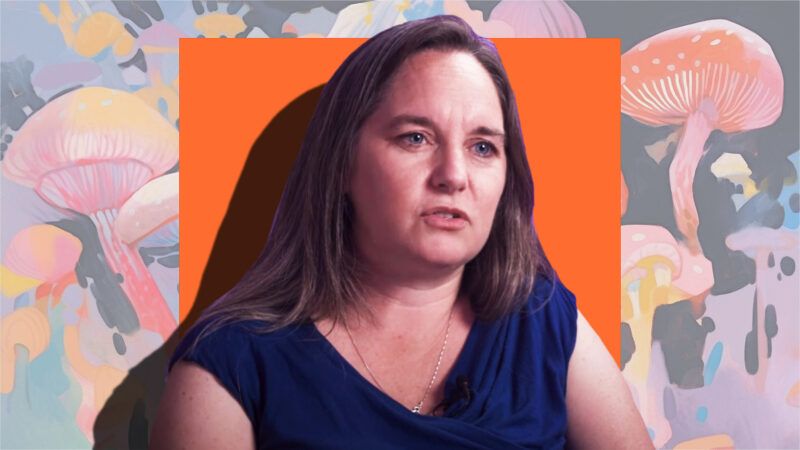Erika Dyck: Are We Living in a Psychedelic Renaissance?
Historian Erika Dyck contextualizes the deep roots of and battles over LSD, psilocybin, and other psychoactive substances.

Over the past few episodes, I've been talking with people involved with what we at Reason are calling a psychedelic renaissance, or a rebirth of interest in substances long associated with the CIA and hippies and counterculture. Today's interest in these substances is mostly motivated by a desire to help veterans and victims of sexual violence who suffer from PTSD and related conditions, including substance abuse. The psychedelic renaissance may well sound the death knell for the war on drugs, at least in its current form.
So it makes sense that today's guest is a historian who studies the man who coined the term psychedelic.
Erika Dyck is a professor at the University of Saskatchewan who studies the history of psychedelics with a special interest in the legacy of Humphry Osmond, the British-born psychiatrist who gave Aldous Huxley his first dose of mescaline, and conducted pathbreaking work using LSD to help alcoholics stop drinking. Among Osmond's best-known patients was Bill W., the co-founder of Alcoholics Anonymous.
Reason sat down with Dyck at the MAPS Psychedelic Science 2023 conference held in Denver this June, where a reported 13,000 people gathered to talk about all aspects of today's psychedelic renaissance. We talked about why drugs such as MDMA, psilocybin, and LSD are making a comeback; how tensions are rising between indigenous people and medical practitioners; and whether prohibitionists have finally lost the war on drugs.


Show Comments (14)